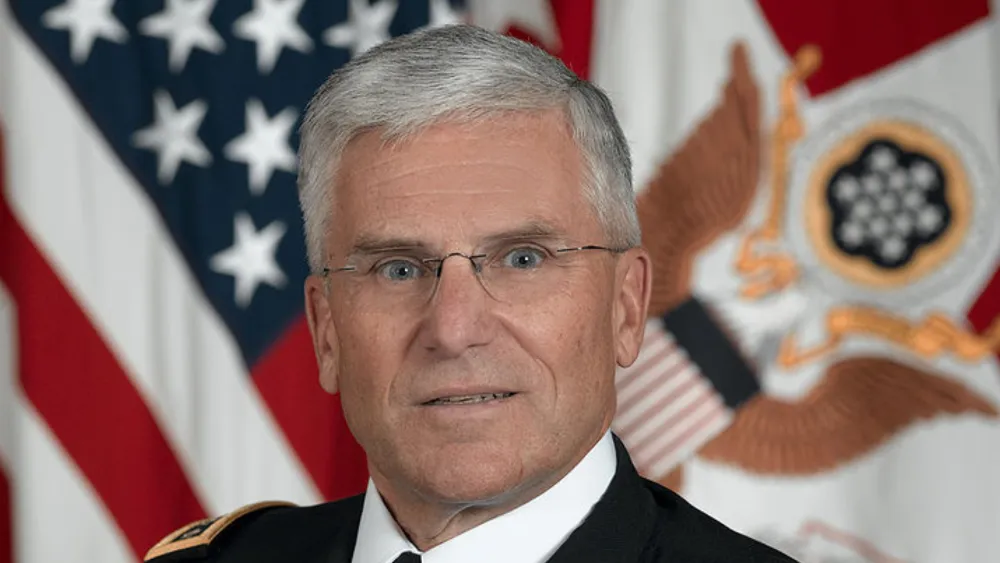The story of General George W Casey Jr is not just one of military leadership. It is also a testimony to the enduring values underpinning the United States armed forces. His life’s journey embodies the very essence of what it means to be a soldier, encapsulating the sacrifices, challenges, and triumphs that come with a career in the military.
A strong sense of duty marked George Casey’s journey from West Point cadet to history’s pivotal decision-maker. Guided by principles of duty, he faced unimaginably demanding situations.
Throughout his illustrious career, General Casey was a military strategist and a compassionate leader. Casey understood the human dimension of warfare. His ability to connect with soldiers and empathize with their sacrifices. Furthermore, his leadership with empathy set him apart as a commander. George Casey cared deeply about the well-being of those under his command.
Growing Up in a Military Family: Japan’s Influence
George Casey’s early years in Japan were characterized by the unique experience of growing up in a military family stationed overseas. Living in Japan’s dynamic and culturally rich environment undoubtedly contributed to his global perspective and would later prove valuable in his military career.
He developed a profound appreciation for many civilizations due to his early exposure to foreign cultures and a grasp of the value of diplomacy and collaboration on the international stage.
As he transitioned from his childhood in Japan to the hallowed halls of the United States Military Academy at West Point, George Casey began to immerse himself in the rigorous training and education that would prepare him for the challenges ahead.
At West Point, he was acquiring the knowledge and skills necessary for military leadership and forging lifelong friendships and bonds with fellow cadets who shared his commitment to serving their country.
The United States Military Academy is renowned for its demanding academic program and its focus on shaping character leaders. In this challenging environment, George Casey developed the principles of duty, honor, and country. Thereafter, it formed the foundation of his military career.
George W Casey Jr on becoming a Leader
Casey’s entry into the military marked the beginning of a journey marked by tireless dedication and an unyielding pursuit of excellence. As he donned his uniform and assumed his duties, it was evident that he was not content with mediocrity. Instead, he sought to excel in every role he undertook, whether in command or staff positions. The innate leadership of George W Casey Jr abilities shone brightly as he assumed greater responsibilities within the Army’s ranks, and it became clear that he was destined for a remarkable career.
General Casey’s commitment to the soldiers under his command was unwavering throughout these early years. He understood that leadership was about giving orders and nurturing and empowering those who served alongside him.
With his men, he developed a strong sense of mutual respect and trust—attributes crucial in the challenges ahead.
One of the most pivotal moments in George Casey’s military career occurred during his deployment to Bosnia as part of Operation Joint Endeavor in the mid-1990s.
General Casey demonstrated exceptional leadership in a region plagued by the aftermath of conflict and the complexities of international diplomacy.
Iraq and the Challenges of Leadership
Perhaps the most significant chapter in George Casey’s career unfolded as the Commander of Multinational Force-Iraq (MNF-I) from 2004 to 2007. This period coincided with some of the most crucial years in Iraq, as the country struggled with insurgency and sectarian violence following the U.S. invasion in 2003.
General Casey led a multinational coalition in a complex, hostile setting. His leadership focused on building Iraqi security forces and transferring security responsibility to them.
This strategy was not without its critics. But Casey’s steadfast belief in its effectiveness demonstrated his determination to stabilize Iraq and lay the groundwork for its future.
Despite the immense challenges and sacrifices during his time in Iraq, George Casey remained resolute in his dedication to the mission and the soldiers under his command.
He recognized the importance of military actions and political and economic efforts to bring stability to Iraq.
Legacy and Post-Military Career of George W Casey Jr
General George Casey’s tenure as Chief of Staff of the U.S. Army marked a pivotal phase in his illustrious career. As the highest-ranking officer in the Army, he assumed a role of great importance. He oversees the well-being and readiness of the entire force.
During this time, his dedication to soldiers and their families remained undiminished. He recognized that the strength of the Army lay not only in its equipment and capabilities. Moreover, he knows the value of resilience and the welfare of its human capital.
Under General Casey’s direction, the Army changed to meet the demands of a rapidly shifting international security environment. His vision encompassed modernization efforts, force structure adjustments, and a renewed emphasis on joint and coalition operations. His commitment to ensuring that the Army remained adaptable, agile, and capable of addressing the nation’s diverse threats left a profound impact on the institution.
Upon retiring from the military in 2011, George Casey’s commitment to service did not waver. He continued contributing his expertise and insights to national security and global affairs.
His wealth of experience and deep understanding of military strategy made him a sought-after figure in academia and the private sector.

The Exemplary Legacy of George W Casey Jr
The story of General George W Casey Jr is not just one of military leadership. It is also a testimony to the enduring values underpinning the United States armed forces. His life’s journey embodies the very essence of what it means to be a soldier, encapsulating the sacrifices, challenges, and triumphs that come with a career in the military.
A strong sense of duty marked George Casey’s journey from West Point cadet to history’s pivotal decision-maker. Guided by principles of duty, honor, and country, he faced unimaginably demanding situations.
Throughout his illustrious career, General Casey was a military strategist and a compassionate leader who understood the human dimension of warfare. His ability to connect with soldiers and empathize with their sacrifices. Moreover, he led with empathy, which set him apart as a commander. It became evident that Casey cared deeply about the well-being of those under his command.
Growing Up in a Military Family: Japan’s Influence
George Casey’s early years in Japan were characterized by the unique experience of growing up in a military family stationed overseas. Living in Japan’s dynamic and culturally rich environment undoubtedly contributed to his global perspective. Thereafter, it proved valuable in his military career.
He developed a profound appreciation for many civilizations due to his early exposure to foreign cultures and a grasp of the value of diplomacy and collaboration on the international stage.
As he transitioned from his childhood in Japan to the hallowed halls of the United States Military Academy at West Point, George Casey began to immerse himself in the rigorous training. Moreover, he took education seriously, which prepared him for the challenges ahead.
At West Point, he was acquiring the knowledge and skills necessary for military leadership and forging lifelong friendships and bonds with fellow cadets who shared his commitment to serving their country.
The United States Military Academy is renowned for its demanding academic program and its focus on shaping character leaders. Nevertheless, George Casey developed the principles of duty, honor, and country. Thereafter, it formed the foundation of his military career.
George W Casey Jr on becoming a Leader
Casey’s entry into the military marked the beginning of a journey marked by tireless dedication and an unyielding pursuit of excellence. As he donned his uniform and assumed his duties, it was evident that he was not content with mediocrity. Instead, he sought to excel in every role he undertook, whether in command or staff positions. The innate leadership of George W Casey Jr abilities shone brightly as he assumed greater responsibilities within the Army’s ranks. And, it became clear that he was destined for a remarkable career.
General Casey’s commitment to the soldiers under his command was unwavering throughout these early years. He understood that leadership was about giving orders. Furthermore, he nurtured and empowered those who served alongside him.
With his men, he developed a strong sense of mutual respect and trust—attributes crucial in the challenges ahead.
One of the most pivotal moments in George Casey’s military career occurred during his deployment to Bosnia as part of Operation Joint Endeavor in the mid-1990s.
Casey exhibited outstanding leadership despite conflict in the aftermath of the conflict-ridden region.
Iraq and the Challenges of Leadership
Perhaps the most significant chapter in George Casey’s career unfolded as the Commander of Multinational Force-Iraq (MNF-I) from 2004 to 2007. On the other hand, this period coincided with some of the most challenging years in Iraq. This was the time the country struggled with insurgency and sectarian violence following the U.S. invasion in 2003.
General Casey led a multinational coalition in a complex, hostile setting. Furthermore, his leadership focused on building Iraqi security forces and transferring security responsibility to them.
This strategy was not without its critics. Casey’s steadfast belief in its effectiveness demonstrated his determination to stabilize Iraq. Moreover, he laid the groundwork for its future.
Despite the immense challenges during his time in Iraq, George remained resolute in his dedication. So, he took care of the mission and the soldiers under his command.
He recognized the importance of military actions and political and economic efforts to bring stability to Iraq.
Legacy and Post-Military Career of George W Casey Jr
General George W. Casey Jr.’s journey embodies military values, emphasizing duty, honor, and empathy. From his West Point days, he exhibited leadership and commitment that nurtured respect and trust. Leading in Bosnia and Iraq, he faced complex challenges, focusing on Iraqi security forces. His legacy promotes principles and excellence amid adversity. Moreover, his life exemplifies determination, honor, and responsibility.











